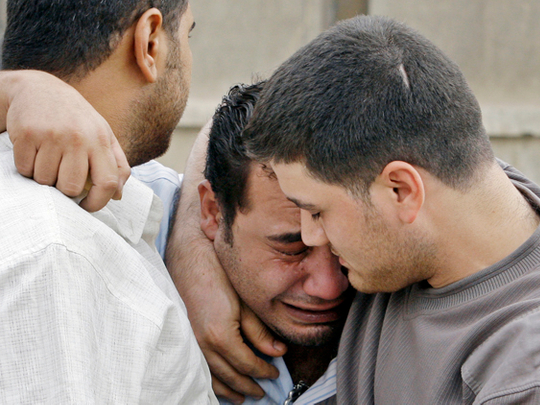
Iraqi Christians have all the reasons to be scared. They have come under attack since the fall of the Saddam Hussain regime in 2003. Therefore, Sunday's church massacre didn't come as a surprise. Terrorist attacks have targeted minority communities in Iraq in the past and thousands of Christians have fled the country in recent years.
In a special synod of Catholic bishops, held in the Vatican City two weeks ago, church leaders complained that the "difficult conditions" faced by Christians in the region because of discrimination and violence were forcing many to emigrate.
There are around 20 million Christians in the Middle East in a population of around 356 million people.
Arab Christians, despite being a tiny minority, had lived with Muslims for centuries without being discriminated against or having to fear for their safety. A great number of them are leaders in the Arab world in most fields, like the arts, business and politics. Christians were the leading advocates of Arab nationalism and the pioneers of the Palestine Liberation Organisation.
But in recent years, with the rise of religious intolerance in the region, Christians have started to feel the heat. And herein lies the responsibility of political and religious leaders in the Arab world.
Arab Christians are not aliens in this region. They are an integral part of the Arab world and continue to contribute to its cultural richness and religious diversity. But they have to be assured that the majority understands their need to feel safe and for their rights to be respected.
A Lebanese leader once said that Lebanon "without its Christians and Muslims coexisting together would have no reason to exist at all". This is true in the rest of the Arab world, particularly in Iraq, which will only fail as a country and a state if we all let its Christians down.







